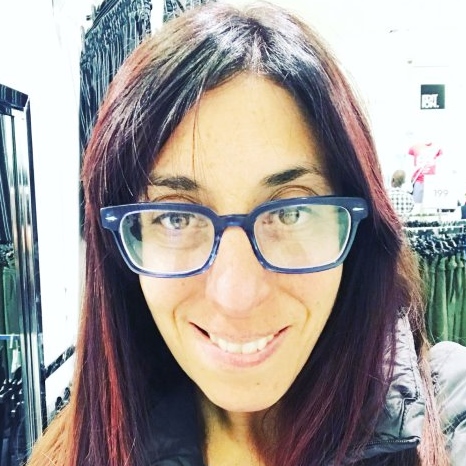click to dowload our latest edition
CLICK HERE TO SUBSCRIBE TO OUR NEWSLETTER


Published
5 years agoon
By
adminADINA ROTH
In between the games, the songs, and the kneidlach, we are all invited to explore the deeper meaning of freedom, and to contemplate clues about redemption.
It strikes me that this Pesach, Jews around the world exist in a morally complex time. We are sandwiched, as it were, between the Israeli and South African elections, with Trump’s wall seemingly on the rise, and Brexit teetering between “yay” and “nay”.
Never have our Jewish communities been more divided about who is a modern-day Pharaoh, and who is Moses. For some, Benjamin Netanyahu’s fifth term feels like the rise of a powerful autocrat in Israel, while to others, Netanyahu symbolises the strength, security, and indeed freedom of the Jewish people.
Some rabbis will visit the Mexican-American border during Passover, and raise voices of conscience against Trump’s legislation against foreigners, while others will remark that Trump has been so good for Israel and therefore, for the Jewish people.
In the Haggadah, we are presented with a clear foe and a convincing saviour. Pharoah is a rigid tyrant, who casts the Israelites as “other”. Moses is the best kind of leader – reluctant and humble. He defends those in a weakened position, be it an Israelite who is being beaten, or Midianite women.
Throughout history, we have had stories that echo with the moral clarity of the exodus narrative. Consider those Jews in the Soviet Union who could not practice Judaism or move to Israel. Indeed, the Union of Soviet Socialist Republics was seen as a modern Egypt, and Israel was the Jewish people’s saviour.
Or consider the fight for civil rights in America in the 1960s. When Abraham Joshua Heschel joined Dr Martin Luther King at the Conference on Religion and Race, he made an explicit link between our Jewish story of slavery and the modern struggle for civil rights. He said famously, “At the first conference on religion and race, the main participants were Pharaoh and Moses… the exodus began, but is far from having been completed. In fact, it was easier for the children of Israel to cross the Red Sea than for a negro to cross certain university campuses.”
The story of Pharaoh and Moses becomes such a useful trope when there is a clear “bad guy” and “good guy”. Indeed, even today there are perhaps some groups that we would all agree fit in the category of a Pharaoh. ISIS comes to mind!
But this year, it is more than likely that at some seders, certain world leaders will be hailed as modern-day Moses, while those same leaders will be typed as Pharaohs at other tables. We are in a tricky space as a Jewish community, where the left and the right point fingers at each other, each group convinced of their moral uprightness.
Pharaoh’s oppression and slavery of the Israelites started with a need to cut down our being rav or “too much”. Pen yirbeh (in case they become too many), he said. On a literal level, Pharaoh feared our numbers, our birth rate. But metaphorically, rav becomes a trope in the Egypt story for that which is “too much”, that which doesn’t quite fit in… that which is different.
Perhaps, Pharaoh’s fear of the Israelites is something we all do to each other today. Indeed, each community has its box of what is too much or too little, too different or too other, and we stretch people and cut people down, in our minds and in our social spaces, in order to say, “fit in or leave”.
In this sense, Pharaoh today is not one identifiable group or leader, but a consciousness that resides in us all which labels those who think differently as “too much”.
In order to deal with his fear of our being too much, Pharaoh turns to two midwives and commands them to kill Israelite male infants. We read that these women “feared G-d”, and they did not listen to what the king of Egypt ordered them to do. Perhaps the oldest instance of civil disobedience, these women do not share the king’s fear that the Israelites are “too much”. What’s more, they refuse to obey the most powerful man in their world.
Their courage is gobsmacking! The rabbis are not clear as to the nationality of these women. Some suggest Shifrah and Puah were Egyptian midwives who assisted with Israelite births, while others suggest they were none other than Yocheved and Miriam, an Israelite mother-daughter team.
Perhaps the ambivalence around their nationality is meaningful, for voices of moral conscience and acts of exemplary courage can be found among all of humanity. Some might say that the midwives do not choose the side of either Egyptian or Israelite, they simply choose to prioritise the protection of children. In so doing, they bypass the mutually exclusive dichotomies, and affirm the value of life itself.
As we contemplate freedom this year, let us remember that our freedom was curtailed by someone who labelled us “too much”. Perhaps in searching for freedom for ourselves and others, we might want to challenge ourselves when we label others, and rather find paths to empathy, to listen to where people are coming from.
In so doing, we invoke the spirit and memory of the midwives who clung to humanity and the life force in the face of great evil. What if these unsung heroes of the story were the clue to our modern-day “redemption song”?
• Adina Roth is a clinical psychologist in private practice, and a teacher of Jewish Studies. She runs an independent Barmitzvah and Batmitzvah programme in Johannesburg, and teaches Tanach to adults. She is also a teacher at Melton in Johannesburg.
